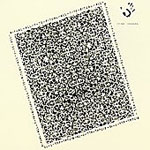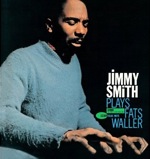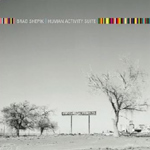Home » Jazz Articles » Album Review » Alan Sondheim: Ritual-All-7-70
Alan Sondheim: Ritual-All-7-70
All music is ritual, a reaffirmation of the unity of musicians and audience and on a much larger canvas it is also an affirmation of the humanness of all civilization, wherever it may exist. Sondheim probably set out to show how true this is—and he succeeded. There is an organic energy that runs through this music and the music appears to be propelled by inner rhythms of no fixed time and place. Perhaps this may be the reason why the music is fresh, even today, and has universal appeal. Quite simply this music describes anywhere that music is made.
The percussive nature of "770," the first track, may actually reference the very origin of sound, except that from the human voice, that is added when Ruth Ann Hutchinson adds her seminal wail to that created by the cornet and occasionally the saxophone on "771." Forget countries of origin. Instruments—the tabla, sona, koto and coranglais, can only suggest time and place. Thus "770" may be African, "772" is Chinese. And so on...
It would be a travesty to suggest that as the music progresses it parallels an excursion through various countries, just because this music stands for the very universality of the sonic "word." This is a pure expression of developing melody, harmony and rhythms that unfold organically to the idea of instrumental range and depth which, in turn, is used to create danceable music. Sondheim does suggest that this music may be replicated—not exactly, but definitely similarly—anywhere in the world. So if it sounds Balinese, which it does sometimes, or Indian, which it does at other times, or Middle Eastern, or Chinese or just plain jazzy—it does so because it is. Coltrane strove for music that was free of time and place, as did many who passed through life in the '60s. Perhaps Sondheim was part of that select few who understood that beyond the idioms and the turn of phrase, there was a purer sound that reflected joy. And this is best described on Ritual-All-7-70
Track Listing
770; 771; 772; June; 774; 775; 776; 777; 778; 779; 780; 781; 782.
Personnel
Ruth Ann Hutchinson: vocals (2, 5, 9, 13); Chris Matteson: bass (1, 2, 5-7, 11, 12): Barry Sugarman: bongo, tabla (1, 2, 3, 5, 7, 11, 12); J.P.: drums (2, 6, 7, 9, 12); Robert Poholek: cornet (6), trumpet (2, 3, 8, 9, 11, 12); Alan Sondheim: xylophone (1, 9); alto saxophone (2, 6) sona (3), classical guitar (4), electric guitar (7), Hawaiian guitar (12), English Horn (5), bansari (8), koto (10), clarinet (11), suling (13).
Album information
Title: Ritual-All-7-70 | Year Released: 2009 | Record Label: ESP Disk
Tags
PREVIOUS / NEXT
Support All About Jazz
 All About Jazz has been a pillar of jazz since 1995, championing it as an art form and, more importantly, supporting the musicians who make it. Our enduring commitment has made "AAJ" one of the most culturally important websites of its kind, read by hundreds of thousands of fans, musicians and industry figures every month.
All About Jazz has been a pillar of jazz since 1995, championing it as an art form and, more importantly, supporting the musicians who make it. Our enduring commitment has made "AAJ" one of the most culturally important websites of its kind, read by hundreds of thousands of fans, musicians and industry figures every month.





















